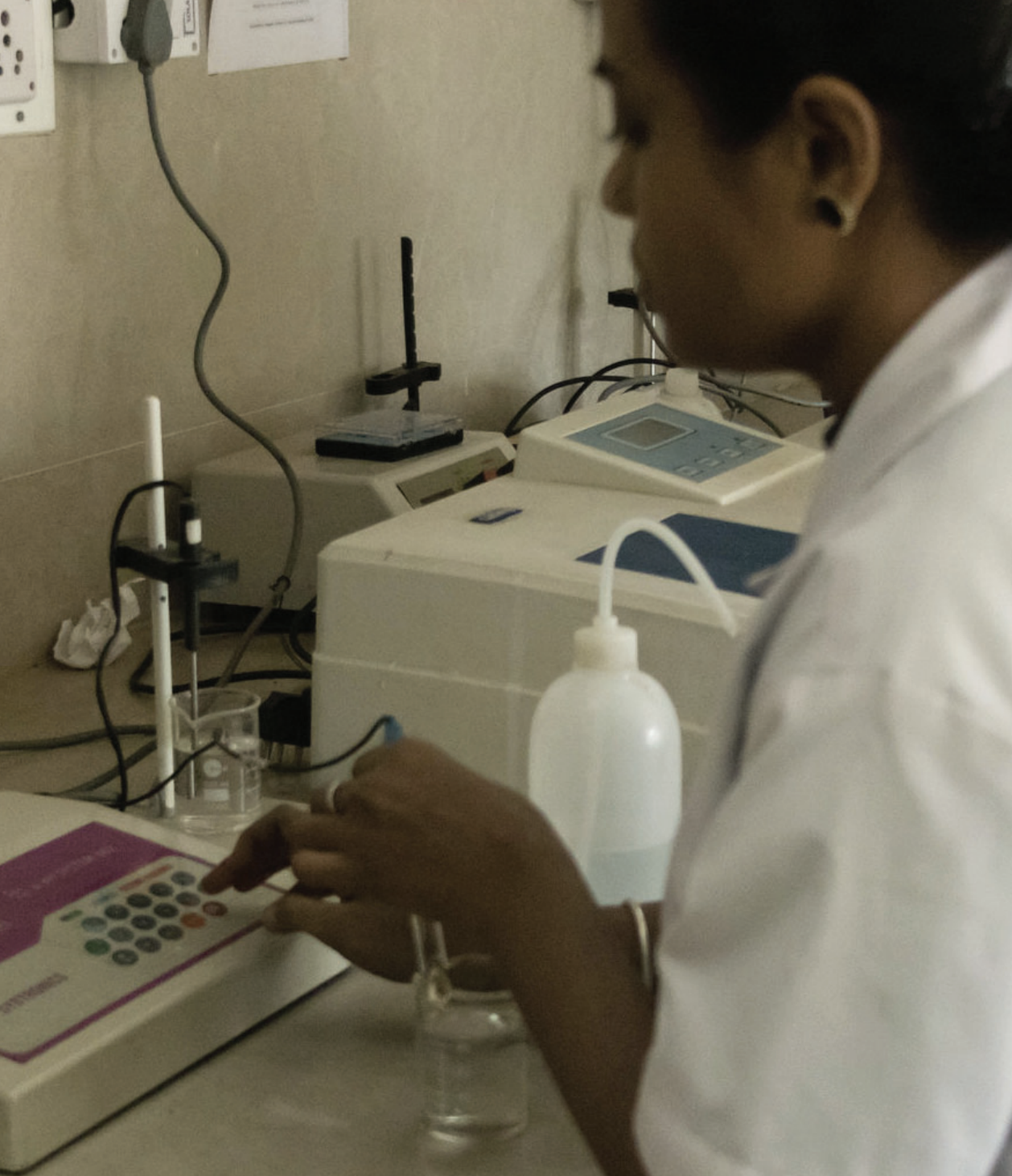Background
Soil is the basis for all things; agriculture, recharging underground water tables and sustaining biodiversity. Dealing with devastating climatic conditions and being able to grow crops productively requires a clear understanding of soil health and appropriate farming inputs and cropping practices. Farmers looking to access government agriculture-related subsidies and schemes including for drip irrigation, sericulture, fisheries, farm ponds etc. also need to provide certificates of soil health.

Uninformed Decisions for Soil Health Management
Indiscriminate use of fertilizers and pesticides have had adverse effects on local soil and water conditions - some of which percolate into the groundwater and affect drinking water as well. There is need for soil testing that helps farmers understand the lack of nutrients and the ways in which they can replenish or adapt. Centres are often missing or in districts inaccessible to farmers at the last mile with infrequent power supply. Many schemes and policies are also inaccessible to farmers if they do not produce an updated soil health cards.

Effects of Climate Change
Heat stress reduces moisture in the soil while increased chances of floods and cyclones erode the soil. This affects microorganism activity. Without knowing the extent of damage, corrective measures can't be taken at the right time, which can lead to crop failure and severe degradation.
Solution
Soil testing provides a mechanism to identify farmers with land that is worse off or more vulnerable to climate risks. A digital soil testing kit that requires minimal training. It determines 14 parameters of soil, going beyond the NPK and testing for micronutrients too. In the report, it suggests crop-specific fertiliser dose for 100 crops and prints Soil Health Card. To avoid cellular network issues, it is programmed to send soil test report on mobile through Bluetooth.
Impact
1. Increased testing due to improved access of the machine and reliability of the power.
2. Increased attention on overall wellbeing of soil and not just phosphorus, potassium and nitrogen that aid short term crop yield.
Building Climate Resilience
Mitigation
With increasing climate vulnerability leading to soil degradation, there will be an increased need for soil testing at the last mile. Emissions from powering these centres can be significantly reduced through solar power.
Adaptation
Based on the result, recommendations of appropriate cropping patterns and agricultural practices for those regions can help provide farmers a means of adapting to changing climate.
